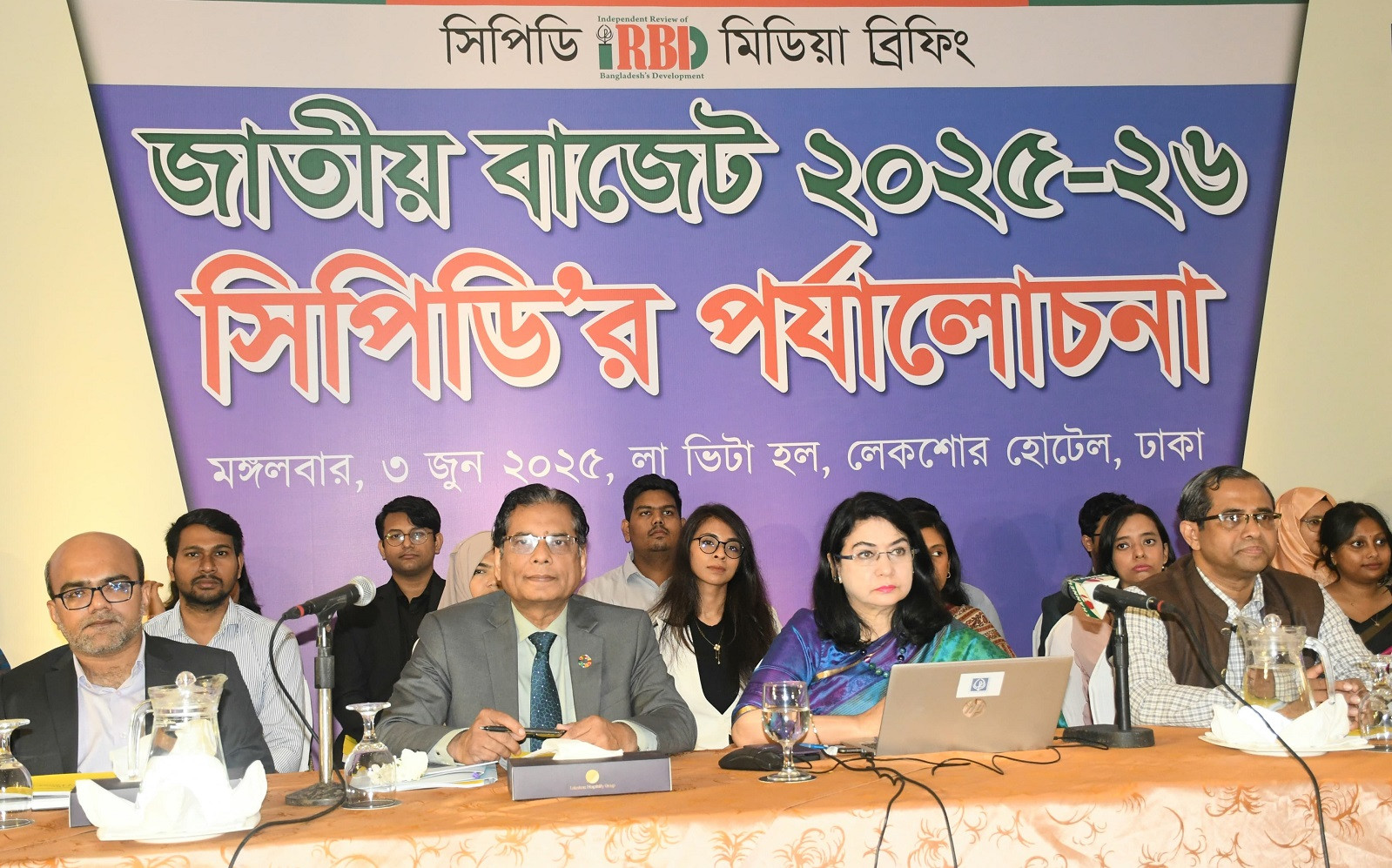

Staff Correspondent: The Centre for Policy Dialogue (CPD) on Tuesday criticised the proposed national budget for the fiscal year 2025–26, saying it lacks alignment with the ideals of an equitable society, particularly in the wake of the July transition.
In a press conference titled “CPD’s Review of the National Budget 2025–26,” the think tank raised concerns over existing inequalities, especially in the taxation framework.
CPD Executive Director Dr Fahmida Khatun stated that the budget was expected to be people-centric and focused on holistic national development, rather than merely promoting growth and physical infrastructure.
“However, the budget presented by the Economic Adviser does not reflect that commitment,” she said.
Referring to the issue of tax-free income, CPD noted that while the limit has been proposed to increase from Tk 3.5 lakh to Tk 3.75 lakh, it will only come into effect in the 2026–27 and 2027–28 fiscal years.
Compared to projected inflation at that time, this relief is ‘insignificant’, the organisation said. Like in previous years, the tax burden will fall heavily on the lower-middle and middle-income groups, especially those earning between Tk 6 lakh and Tk 16 lakh annually, CPD warned. In contrast, people with annual incomes above Tk 30 lakh will enjoy relatively lower tax rates, a disparity CPD described as a clear sign of inequality.
Describing the 6.5% inflation target set in the budget as ‘ambitious’, Dr Fahmida noted that recent monthly trends suggest the government will struggle to contain inflation within that limit. “Keeping annual inflation at 6.5% will be a challenging task for the government,” she said. Commenting on revenue projections, CPD Fellow Dr Mustafizur Rahman said achieving the ambitious revenue target will be difficult as the revenue administration remains unreformed. “The government has virtually surrendered to the revenue department in this budget.”
While some aspects of the budget—such as the projected growth rate, debt structure, and tax inequality—were anticipated, they remain deeply concerning, CPD noted. Dr Fahmida also strongly criticised the move to allow the whitening of undisclosed money, saying it is ‘unacceptable from a moral standpoint.’
While the government has offered the opportunity to legalise black money through investments in the housing sector, it has simultaneously increased duties on various items in that same sector, which will disproportionately affect the middle class, she said.
Currently, 20 mega projects are underway, with eight scheduled to be completed by 2026. But, CPD believes that these projects are unlikely to be completed on time and that their costs will escalate, exerting further pressure on the budget’s Annual Development Programme (ADP) allocations.
On sectoral allocations, Dr Fahmida noted that education has received less than 2% of GDP and health less than 1%. “Such allocations cannot lead to meaningful improvements in these vital sectors.”
Regarding social safety nets, CPD stressed the importance of increasing actual allocations for intended beneficiaries, excluding government pension payments and agricultural subsidies, which are currently included under the social safety net umbrella.
ICPD said that the proposed budget fails to meet the expectations of building an equitable Bangladesh and called upon the Economic Adviser to reassess various aspects of the proposal.
